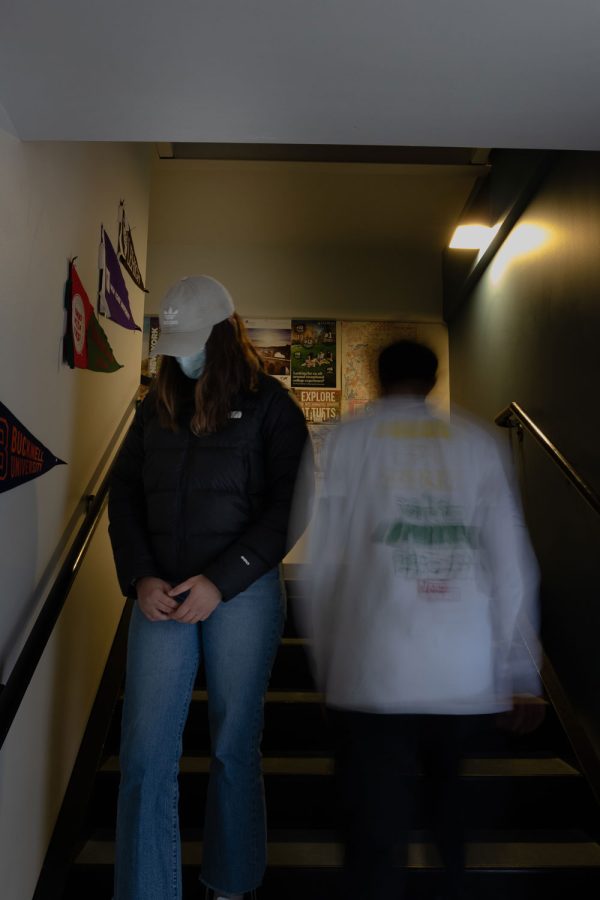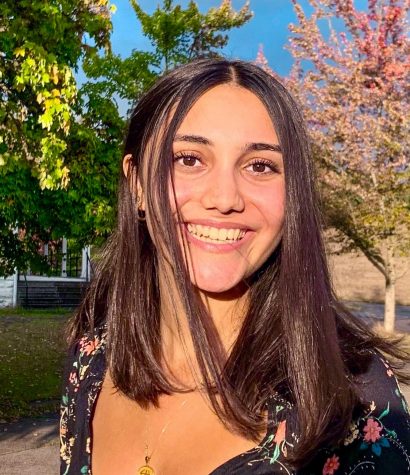Administration Rethinks Survivor Support Policy
Student survivors share their stories of coming forward to the school
Photo: Matthew Sage/websitename
“I’m always keeping an eye out since we are in the same grade. We have similar friends. He’s always around me. I’m definitely always very alert,” she said.
She is a sophomore who shared her experience of being a survivor of sexual assault at University Prep. We created the alias Ella and agreed not to reveal her identity to protect her privacy.
Ella didn’t initially report her assault, which happened over the summer, until just before Homecoming. After learning her friends similarly felt uncomfortable around the person she felt was responsible, she came forward to the school.
“I felt like if I reported him, it would make a difference because it could get him suspended or expelled,” Ella said.
After learning more details about Ella’s experience, the counselors notified the police and head of school. Law enforcement came to school and took Ella’s statement as part of their external investigation. In accordance with their policy, the school then based its disciplinary response on law enforcement’s report. However, according to Ella, the police report has not continued further than her statement.
“They’re [the school] not allowed to expel him or suspend him unless it goes further in the police case,” Ella said.
Following a police report, the school’s policy is to draft a safety plan that is signed by the survivor, the accused and both of their parents. According to Ella, the safety plan outlines a number of measures set in place to protect her. For example, the survivor gets priority to attend their classes, clubs, sports, dances, etc.
“Since we’re in the same grade, they have to create a contract that makes me feel safe,” Ella said. “I’m prioritized above him in the contract, if that makes sense. He gets moved from all the classes I was in, but my life stays the same.”
In addition to Ella, The Puma Press interviewed another sophomore about her process reporting her assault and signing a safety plan with the school. Her alias is Sarah.
“I was so scared that if I told anyone, they would just think I was lying because it was further on and I didn’t say it like right away or the day after it happened,” Sarah said.
Sarah says she confided in her advisor, who then went to the counselors out of legal obligation as a mandated reporter. Mandated reporting is a statewide law that requires teachers, social workers, doctors, etc. to notify authorities after witnessing child abuse or neglect.
“The counselors were very supportive. Ronnie and Joel took my side and told me they fully believed me,” Sarah said.
According to Sarah, survivors don’t get any information about the school’s accountability process and consequences for their alleged abuser. Even in signing the safety plan, she says, survivors are left in the dark.
“It was the hardest thing for me because I didn’t know what was going on on the other side of the thing or the situation. I felt like it was directed to me and that’s what was frustrating,” Sarah said.
Community Support and Culture
Safety plans drafted by the school are private documents that Head of Upper School Joel Sohn monitors. Before telling her story, Ella shared in an email to the Puma Press that she checked with Sohn to ensure her interview wouldn’t conflict with the safety plan.
Both parties must agree to not publicly shame or speak maliciously about the other. Despite this clause, word of mouth travels quickly at UPrep, especially when students are moved from classes and advisories mid-semester.
“Most people don’t bring it up with me. But I know it’s talked about,” Ella said. “My grade definitely does have issues with making rape jokes. The boys in my grade always believe the abuser and not the victim.”
Similarly, Sarah described the courage it took to speak up, re-live and report her story to the school. Beyond administrative support, she also faced challenges in sharing her experience with her friends.
“It was really hard, because someone can be friends with this person and me. I had to, like, open up to them about it. And it was either that they supported me or they didn’t believe me,” Sarah said. “I lost a lot of friendships because of it, but my closest friends believed me.”
In accordance with school policy, no details about the report are made public to teachers, classmates or other community members.
“Not even like, my teachers know about what happened. I feel like it just depends on the person, but for me, personally, I didn’t mind discussing it,” Sarah said.
Administrative Initiatives
The current procedure for filing and following up on cases of sexual assault is unwritten and unclear, as noted by Head of Upper School Joel Sohn.
“We handle things on a ‘case-by-case’ basis. Anytime that I see that, it makes me a little bit nervous,” Sohn said. “It makes it sound like we’re making policy up as we go along, which reduces transparency for students and reduces trust in the system.”
In the UPrep 2021-2022 Family Handbook, sexual harassment is a sub section of the general harassment section, and is never mentioned on its own. The current procedure requires a division director to immediately inform police, and conduct an investigation. After an investigation, whose procedure is not mentioned, “appropriate corrective action” will be taken. Then, after the sequence of mandated reporting, the policy begins to venture further into gray area.
“We immediately notify police… from there, we wait. We respond in terms of how the law enforcement responds,” Sohn said. “That’s where I get kind of frustrated with the systems and a lack of policy and procedure.”
Changes are in the works. Since Sohn’s arrival at the school, he has been working on ways to upgrade and refine the school’s policy. To do this, Sohn appointed Schorr Lesnick to lead a task force staffed by other faculty and students to research sexual assault policies.
“Mr. Sohn is working on a specific policy that’s a mixture of adults and students who are going to be really looking at policies, what are the legal questions, as well as what is clear,” Schorr Lesnick said. “If you have a handbook that’s got all the perfect legal jargon, but it means nothing in conversation, then how are we going to communicate that out?”
In addition to a more transparent policy from the administration, Ella believes change starts with the individual.
“There needs to be a big change made,” Ella said. “I don’t want there to be more of these cases. It needs to be a lot more talked about.”
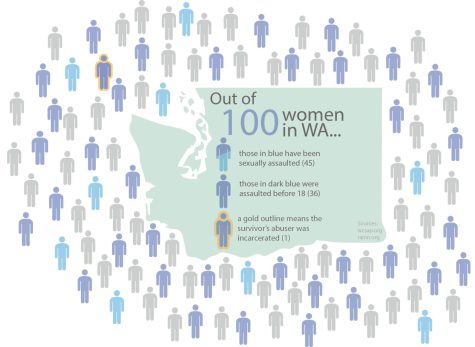
Consent Education
UPrep’s efforts to foster a community of consent starts with consent education. According to Sarah, UPrep did not prepare her with enough information or skills to understand consent fully.
“Last March I had heard something about what assault was because I didn’t understand the concept of it,” Sarah said. “And I was like, ‘Oh my God,’ and it just hit me, and I started crying. A lot.”
Currently, students learn consent and boundary learning in middle school
and 9th grade health classes. Ella believes that UPrep health programs have room for improvement.
“UPrep has done a really poor job in teaching it,” Ella said. “I know everyone says we learned it in seventh-grade health. I have no memory of that. In ninth grade health, we had a brief 20-minute conversation, but I don’t think it stuck and it was over Zoom.”
Director of Social Emotional Learning Emily Shorr Lesnick echoed Ella’s sentiment. Schorr Lesnick, a leader in consent advocacy work at UPrep, stressed the importance of longer-term consent education.
“We know that middle school and ninth grade health are not enough,” Schorr Lesnick said.
“Especially knowing that so much happens being in ninth grade in high school, so [we are] really wanting to make sure that there are multiple touchpoints, that we are practicing this ongoing.”
Schorr Lesnick has attended the Georgetown Day Sexual Assault Summit for the past four years. She and student attendees brought back what they learned by creating workshops and social justice day tracks about consent.
“Consent work is everybody’s work,” Schorr Lesnick said. Every gender, every position and age in this school.”
Seattle Public Schools Students Speak Out
On November 8, over 600 students at Ballard High school walked out of classes to protest their school’s treatment of sexual assault cases. Sophomore Dylan Carney-Woods planned the protest just the day before using social media to spread the word.
“I was amazed and moved by the turnout and support,” Carney-Woods said. “We gave our peers the option to either stand up and share their SA experience, or anonymously write it down in a notebook for someone else to read out if they wanted.”
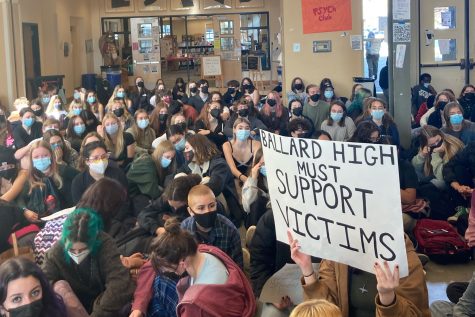
UPrep student Sarah left school to take part in the protest at Ballard.
“I was scared because it was the first time I got to share my story…I feel like it’s way easier at other schools because you can just kind of share it without being scared that you have be around those people every single day,” Sarah said.
Since the walk-out Carney-Woods co-founded SASA (Students Against Sexual Assault). SASA planned another rally outside the John Stanford Center on Dec 1 and has since testified before the SPS school board about survivor support.
SASA Demands
1: If a student is undergoing an active investigation for sexual assault, they lose the privilege to participate in extracurricular activites.
2: Training for all SPS mandated reporter on how to appropriately handle when a student reports a sexual assault or harassment claim.
3: Improved FLASH (Family Life and Sexual Health) communication and sexual assault specialized therapists in all high schools.
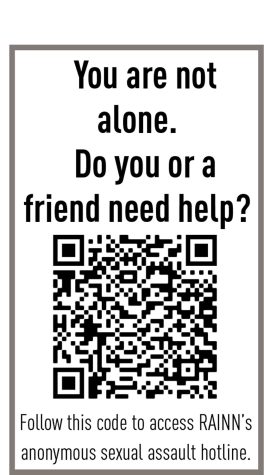
Your donation will support the student journalists of UPrep.
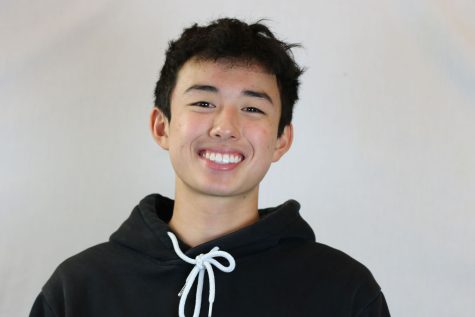
Ethan Matsubayashi is one of the print editors-in-chief of the Puma Press. He has been on staff for three years and is excited to explore innovative formats...

